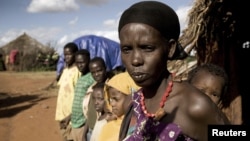Despite having a population of almost 100 million, demand for books is low in Ethiopia. There are not many books written in the local languages, and few Ethiopians read for pleasure. Two sisters hope to buck the trend by publishing children's books that Ethiopian kids can easily grasp and enjoy.
Wanting to read stories to her young children, Tsion Kiros had to rely on books written in English, as there are few Amharic-language children's books available.
But the story of the tooth fairy, for example, is very different in Ethiopia than it is in the West:
“When a girl pulls a tooth, or boy, we throw it on top of the roof. And then a bird takes it, or a mouse takes it. We have this whole other culture. And this is important. Our children have to know how we do things and see our lives.”
Tsion has started a publishing house with her sister. They have published the Ethiopian version of the tooth fairy, and other stories that reflect the country's culture and environment.
Of Ethiopia's nearly 100 million people, only 49 percent are literate.
Fourteen-year-old Lidya Biset loves to read books, but said most parents do not encourage kids to read.
She said she reads on her own initiative, as most parents think going to school is more important than reading for pleasure.
That makes it difficult for Lidya to convince her mother to buy her books that are not needed for school. Her school does have a library, but there are not many books there.
The price of a newly printed book in local stores is about $1.50 — affordable for middle-class Ethiopians and less expensive than children books that previously were available.
Children's book writer Azeb Worku Sibane remembers there also was a lack of books during her childhood. Azeb wrote a book about a red fox that goes on an adventure and simultaneously teaches kids about different modes of transportation.
She said a lot needs to be done to establish a reading culture in Ethiopia:
“We need books written in Amharic and other Ethiopian languages. We need writers, who can write story for children, you need specific way of writing. And we have to encourage the cultural minister, the education minister, or the government, or parents, we have to encourage that,” said Azeb.
Tsion said her company printed 30,000 children's books in 2015 in the two most common languages in Ethiopia, Amharic and Afaan Oromifa.
She said the next step is to write and publish books in tandem with the government.
“They’ve given us a training on how to write level training books and what to include, what the theme should be, what subject we should focus on," said Tsion. "Our next step would be to use that guideline and develop storybooks.”
The publishing sisters hope to establish a reading culture by focusing on young kids first, as almost half of the Ethiopian population is under the age of 15.




